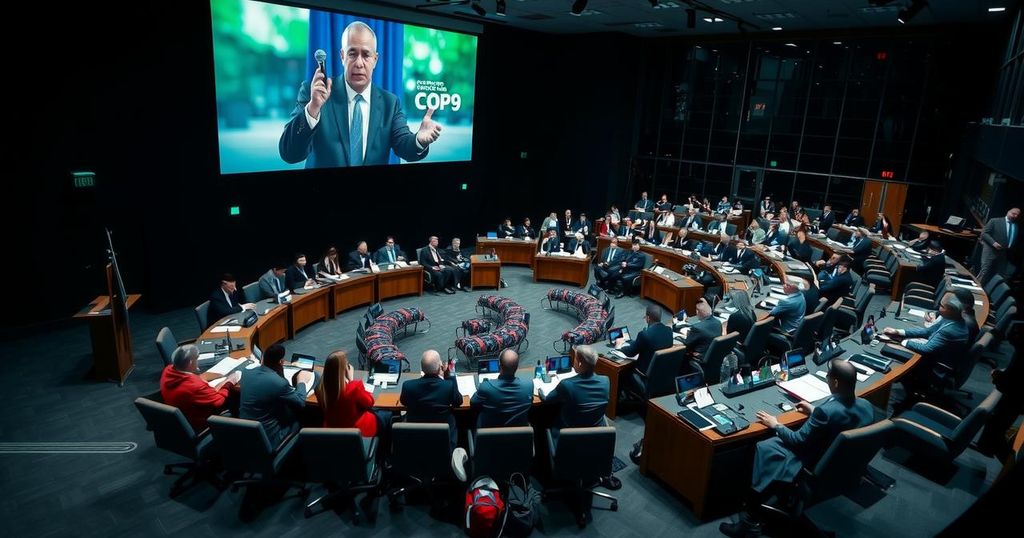Key Developments at COP29: Carbon Trading and Criticism Amid Controversy
COP29 has initiated standards for international carbon credit trading, allowing wealthier nations to buy emission reductions from developing countries. Additionally, it seeks to determine necessary funding for disaster relief and clean energy for vulnerable nations, while facing criticism over the host country’s oil dependence and lower participation from world leaders this year.
The annual climate summit known as COP29 commenced yesterday in Baku, Azerbaijan, achieving a pivotal milestone by establishing standards for international carbon credit trading. This arrangement permits affluent nations, such as the United States and Japan, to fulfill their climate objectives by purchasing emission reductions from developing nations, thereby raising concerns from critics who label it a potentially exploitative deal. An additional focus of this conference is to assess the financial resources required by vulnerable nations to address climate disasters and implement clean energy solutions, with demands for an increase in the current $100 billion annual target for at-risk countries. However, COP29 is marred by controversy due to its host nation’s heavy reliance on oil and gas, which constitutes a significant portion of Azerbaijan’s economy. It also witnesses a notable decline in participation, with 48 fewer heads of state attending compared to last year, including notable absentees such as Xi Jinping and Joe Biden. The low turnout has been further impacted by Papua New Guinea’s decision to boycott the conference, critiquing it as ineffective.
COP29 represents the 29th annual Conference of the Parties under the United Nations Framework Convention on Climate Change, where global leaders convene to discuss and negotiate matters related to climate change and environmental policies. This year, the focus has shifted towards establishing a coherent framework for carbon credit trading, designed to facilitate emissions reductions by allowing interacting nations to buy credits from each other, thereby raising ethical and practical questions regarding its implementation and efficacy. The conference also grapples with the financial implications of climate change for vulnerable countries while addressing the geopolitical dynamics influencing participation.
In summary, COP29 has set the stage for significant developments in international carbon credit trading and highlights critical financial needs for climate mitigation in vulnerable nations. However, the controversy surrounding its Azerbaijan venue and diminished participation raises valid concerns regarding the effectiveness and seriousness of global climate commitments. As nations strive to balance economic interests with environmental responsibility, the outcomes of COP29 will be crucial for shaping future agreements and actions related to climate change.
Original Source: www.morningbrew.com




Post Comment